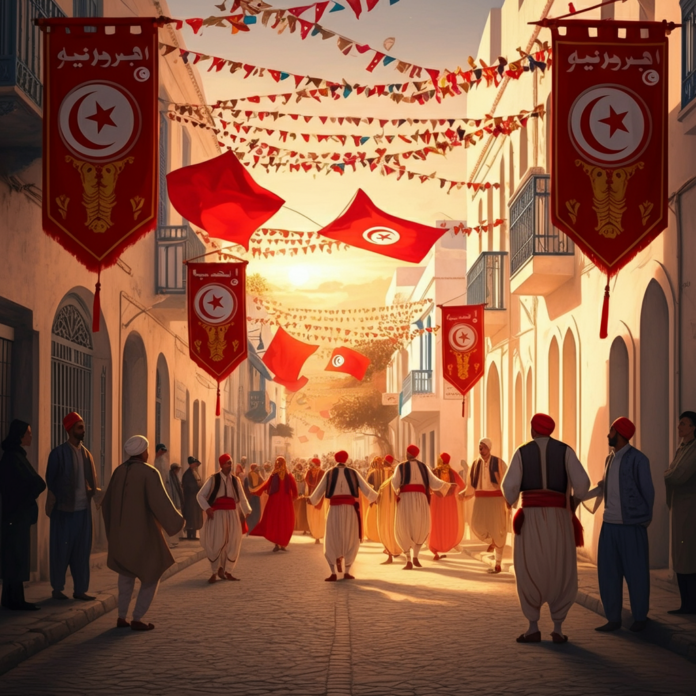Introduction
Nestled in the northwestern region of Tunisia, the town of Jendouba is a vibrant hub of cultural and historical significance. Renowned for its rich traditions and sense of community, Jendouba holds a special place in the hearts of Tunisians and visitors alike. Among its many cultural treasures, the Ranim Hmissi Festival shines as a uniquely cherished celebration of local heritage and identity. This blog explores the historical roots of Jendouba, the origins and meaning of the Ranim Hmissi Festival, its impact on the community, and prospects for its future growth.
Whether you’re a traveler, cultural enthusiast, or proud local, read on to discover why Jendouba and the Ranim Hmissi Festival are must-know features of Tunisia’s cultural landscape.
The Historical Importance of Jendouba, Tunisia
Jendouba is more than just a picturesque town; it is a historical gem with a deep cultural resonance. Located near the remains of the Roman city of Bulla Regia, Jendouba offers a glimpse into the region’s ancient history. Bulla Regia, known for its underground Roman villas, attests to the area’s importance as a historical crossroads of civilizations.
Throughout history, Tunisia Jendouba Ranim Hmissi has been a fertile land for agriculture, thanks to the Medjerda River that flows nearby. Known for its olive groves and vibrant local markets, the town has long served as a meeting point for traders and communities, cultivating a spirit of unity among its inhabitants.
Over time, Jendouba’s traditions, deeply rooted in Tunisia’s cultural heritage, have continued to evolve while maintaining their authenticity. Local festivals and communal gatherings have played a crucial role in preserving the area’s unique identity.
The Ranim Hmissi Festival
The Ranim Hmissi Festival stands as one of Jendouba’s most beloved expressions of culture and community. Celebrated annually, this vibrant festival attracts attendees from across Tunisia and beyond, uniting people through music, dance, and shared traditions. But what makes Ranim Hmissi truly special?
Origins and Cultural Significance
The origins of the Ranim Hmissi Festival are steeped in local Tunisian folklore, celebrating both the artistic talents of the region and the broader cultural legacy of Jendouba. Named after the inspirational figure Ranim Hmissi, the festival encapsulates the artistic spirit and resilience that the community holds dear. It honors age-old storytelling, rhythmic music, and the colorful expression of life unique to Tunisia.
This festival serves as a cultural bridge, preserving history while promoting contemporary art and music. Visitors admire its traditional performances, street parades, and culinary offerings that highlight the best of Tunisian flavors, from brik (savory pastry) to Makroudh (sweet semolina cakes).
Activities and Highlights
Attendees of the Ranim Hmissi Festival can expect a rich array of activities that include:
- Live Music Performances: Showcasing traditional Tunisian instruments like the oud and darbuka, as well as modern interpretations of folk tunes.
- Traditional Dance: Enthralling dance performances that highlight cultural narratives, complete with elaborate costumes.
- Workshops for All Ages: Interactive experiences such as pottery-making, embroidery, and artisanal crafts celebrating Tunisian heritage.
- Food Markets: A delicious showcase of local dishes and specialties (like the iconic Tunisian harissa).
- Storytelling Sessions: Tales passed down through generations, brought to life by skilled narrators who hold the audience captivated.
The festival not only entertains but serves as a medium to educate younger generations about the rich tapestry of Tunisian culture.
The Impact on the Community
Strengthening Cultural Identity
The Ranim Hmissi Festival is more than an annual celebration; it acts as a vital thread connecting the past, present, and future of Jendouba’s cultural identity. By reviving centuries-old music, dance, and crafts, the festival ensures that these elements remain relevant and vibrant for both locals and visitors.
Boosting the Local Economy
From artisans selling handmade goods to stall vendors offering regional specialties, the festival sparks vital economic activity in Jendouba. It attracts tourists who contribute to the local economy by staying in nearby accommodations, dining at local eateries, and shopping at markets.
Fostering Social Connections
Social cohesion is at the heart of the Ranim Hmissi Festival. This event brings together people of all ages, dismantling barriers and nurturing relationships. It reminds the community of the joyful unity found in shared traditions and celebrations, fortifying their collective identity.
The Future of the Ranim Hmissi Festival
While the Ranim Hmissi Festival continues to attract attention and admiration, ensuring its longevity requires forward-thinking approaches.
Opportunities for Growth
- Digital Presence: Increasing online visibility through social media campaigns and digital storytelling could draw an even larger audience to the festival.
- International Collaboration: By fostering partnerships with global cultural organizations, the festival could gain international attention and resources, further solidifying its position on the world stage.
- Expanded Activities: Introducing eco-tours, historical site visits, and themed excursions could diversify the festival’s offerings while giving visitors a deeper appreciation of Jendouba’s legacy.
Sustainability and Inclusion
Implementing sustainable practices, such as reducing waste during the festival and encouraging eco-friendly travel, could enhance the event’s alignment with modern values. Additionally, ensuring inclusivity by providing accessible venues and activities would make the festival welcoming to all.
By prioritizing such initiatives, the Ranim Hmissi Festival can serve as a model for cultural preservation and innovation, inspiring future generations.
Preserving Jendouba’s Legacy Through Celebration
The Ranim Hmissi Festival is more than just an event; it is a heartfelt celebration of the traditions and culture that define Jendouba, Tunisia. From its historical roots to its community impact, the festival offers an enriching experience for all who attend.
Preserving and nurturing festivals like Ranim Hmissi ensures that local culture thrives in a modern world where traditions are often at risk of being forgotten. Jendouba reminds us of the beauty found in community, art, and heritage—an enduring legacy we must cherish.
To truly experience Tunisia’s charm, plan your visit to Jendouba during the Ranim Hmissi Festival. Be part of a celebration that honors the past, invigorates the present, and paves the way for a bright cultural future!


